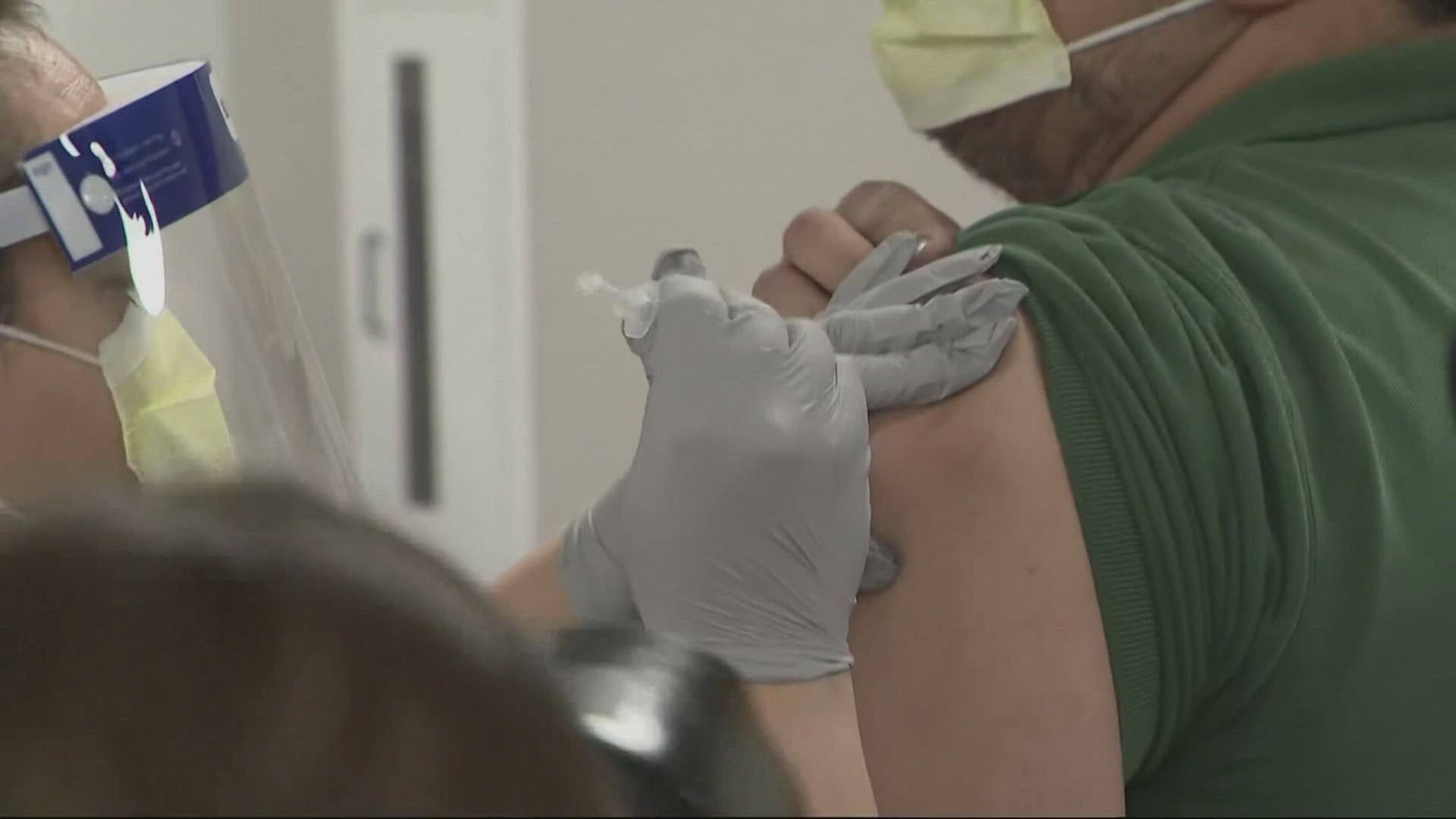PORTLAND, Ore. — The Oregon Health and Science University released a groundbreaking study which reveals switching arms for multi-dose COVID-19 vaccinations can boost immune response. The new study could change the way vaccines are handled in the future.
The idea started during the height of the pandemic when the newly formed vaccine was in high demand and in its early stages of research, according to OHSU associate professor of medicine Dr. Marcel Curlin.
“Many people came through and there was a big rush to get vaccinated. We saw an opportunity to study something that we didn't know much about,” Curlin said. “So, we were looking at immune responses to COVID and vaccinations.”
Once the vaccines became available in 2020, many people wondered whether alternating arms would make any difference.
“The arm randomization was just sort of an afterthought,” Curlin said. “We knew that we were vaccinating in random arms, but we didn't know if it mattered. We always assumed that it didn't.”
OHSU started measuring the antibody response of 947 people who received two-dose COVID vaccinations.
Curlin said they divided the group roughly in half, randomized them and asked one group to receive the “contralateral” — or a shot in each arm — while the other group received the shot in the same arm.
The results found when participants switched arms for each dose, they had 1 1/2 to two times more antibody levels in their blood.
“Any small increase of antibody levels like a two-fold increase would translate into a mortality benefit for those that are most vulnerable to COVID or those most likely to experience a bad outcome.” said Curlin.
OHSU professor of Pediatrics Dawn Nolt echoed that statement and added that the study could potentially help those who are more reluctant to receive the vaccination.
“No promises to parents, but it could be that this increased immune response that we're seeing by alternating the site could mean one or two less doses for their child.” said Nolt.
Participants also said the study could encourage more people to get vaccinated.
“The more efficient you can make the vaccination process, the fewer times that people have to get vaccinated in order to be effective and the more likely they are to get the vaccine.” said participant George Keepers.
Researchers said the improved immune response could be similar for other multidose vaccinations, though a further study would need to be conducted.
The full study from OHSU has been published in The Journal of Clinical Investigation.

